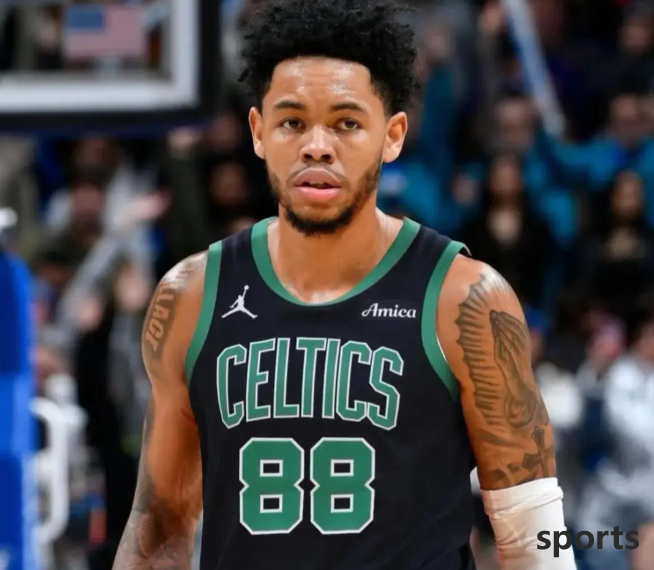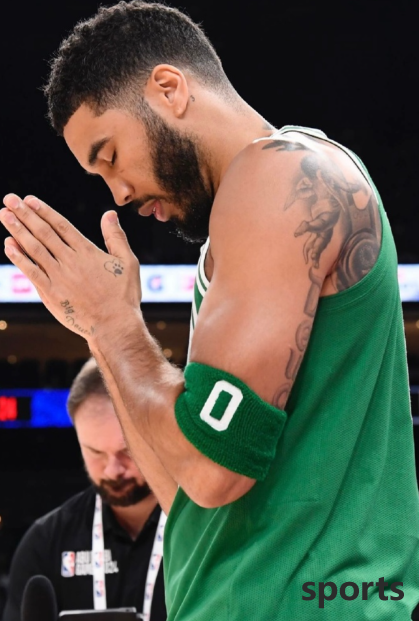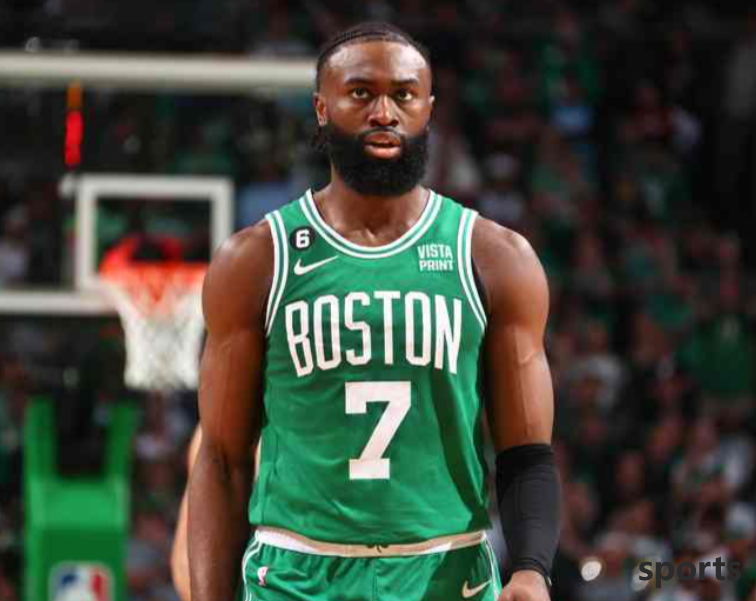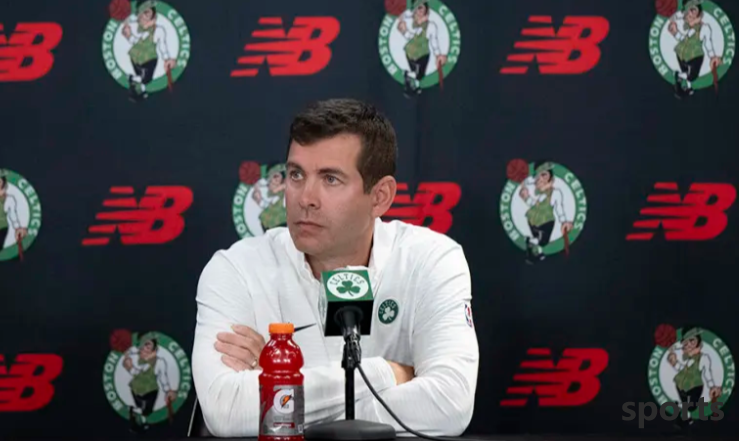Moon Sports > Basketball > Celtics Trade Eyes: Anthony Simmons, is it a bargaining chip or a savior?
Celtics Trade Eyes: Anthony Simmons, is it a bargaining chip or a savior?
"I have talked to several teams, and the news is very consistent - the Celtics are trying hard to send Anthony Simmons away!" This sentence by ESPN famous reporter Brian Windhorst is like a deep water bomb that has been put into a calm offseason, "But can it work? Hey, that's another matter!"
Less than a year ago, in order to strengthen the last championship puzzle, the Celtics won Anthony Simmons as an important bargaining chip in the Joo Holiday trade of the shock league. At that time, the Celtics management obviously hoped that this dual-sports guard with explosive scoring ability could become a sharp knife to tear the opponent's defense line on the bench. However, the bubble of winning the champagne has not yet dissipated, and trading rumors have followed - why did this scorer, who was in his year of playing, make it so quickly on the Celtics' "tradable list"?

A deep analysis of the motivations of the Celtic management, the heavy pressure of luxury tax is like a sword on the roof. Jason Tatum's unprecedented super maximum salary contract renewal has been completed, Jaylen Brown's huge contract is entering the execution period, and with the high salaries of core players such as Ju Holiday and Christapus Porzingis, the Celtics' salary book has already lit up a dazzling red light. Simmons' expiration contract of up to $27.7 million next season will instantly turn into a very tempting and flexible operational chip in the eyes of smart basketball operations president Brad Stevens - it can not only be used to match salary balance bulk transactions, but also release huge space next summer.

On the other hand, there is always a gap between Simmons' technical characteristics and the Celtics' almost strict system requirements. Admittedly, he played in 70 regular season games last season, averaging 19.3 points, 2.7 rebounds and 4.8 assists per game, proving that he is a reliable ball-holding scoring point; he can throw more than 3 three-pointers per game with a shooting percentage of 36.3%. This "draining" long-range firepower can indeed ignite the passion of North Shore Garden on certain nights. However, looking at the other side of the gorgeous data book: 42.6% shooting efficiency can only be considered a mid-level among players in the same position in the league, and the stability of handling the ball under high pressure defense is insufficient; more importantly, his contribution on the defensive end is often free from the overall system of the Celtics' emphasis on unlimited defense replacement and iron-blooded rotation, which is precisely the winning foundation that head coach Joe Mazula attaches most.
Stevens' persistent pursuit of "hardness" and "versatility" of the lineup has never changed. Looking back at the operation of the Celtics this summer: Peyton Pritchard, who decisively gave up his offensive talent but had shortcomings in defense, turned to sign the former Detroit Pistons player Jaden Springer, who has a more balanced offense and defense style. This in and out clearly conveys the management's preference for character players. Although Simmons has original talent and autonomous offensive explosive power that Prichard cannot reach, his similar shortcomings on the defensive end make his position in the Celtics' blueprint more subtle.

So, who may have given an olive branch to this scorer with distinct advantages and disadvantages? Teams that are eager to collect talents during the reconstruction period and need to expire contracts to maintain operational flexibility are natural candidates. The Utah Jazz have accumulated a large number of draft picks and urgently need guards with independent offensive capabilities to increase the ceiling; the San Antonio Spurs have a talented Vinban Yama and are looking for ball holders who can reduce their offensive burdens. Simmons and Vinban's high pick-and-roll cooperation is full of imagination; the Brooklyn Nets are also facing direction choices in the "post-bridge era", and Simmons can become their temporary offensive core in the transition period. However, the obstacles to the transaction are also huge - if the Celtics want to upgrade their lineup, they will inevitably require the other party to provide players who can immediately enter the rotation or even improve their combat power in return, rather than simply draft pick compensation; and Simmons' 27.7 million contract amount also greatly increases the transaction threshold, requiring accurate salary matching and deep compatibility between the demands of both parties.
The complexity of this potential deal is far from a simple assessment of player ability. The more stringent luxury tax penalty under the new version of the labor-cap agreement (especially for super luxury tax teams such as the Celtics) is like the sword of Damocles; the overall salary cap increase in the league is lower than expected, further compressing the operating space of each team; as the new champion, any lineup changes affect the delicate chemistry of the locker room and the ambition to defend the title.
Anthony Simmons' stay and departure is like a prism, reflecting the cruel reality and exquisite calculations faced by NBA championship-level teams in the era of salary explosion. The Celtics’ management is walking a tightrope between betting on the present and planning for the future. Every step is related to whether the dynasty can be continued.
Winderhorst's revelation of "it's actively seeking a deal" is by no means groundless. What the Celtics need to weigh is: is it to squeeze out the last drop of transaction value of Simmons' expiration contract in exchange for a puzzle that is more in line with the system? Or should I bet another year, and look forward to his explosive growth in the contract year and becoming an irreplaceable "raised war master" on the bench?
When gold dollar basketball meets the championship dream, the chips in Brad Stevens' hands are not only related to Anthony Simmons' next stop, but also whether the Celtic dynasty can open up a sustainable road to defend the title in the luxury tax storm.

Do you think the Celtics should bet on Simmons' potential, or do you trade decisively for real-time combat power? Which team of the guard who has talent and controversy will this defender wear in the new season? Welcome to leave your insights in the comment section!
Related Posts
The Rockets made another good profit before the opening game, and Durant left two pieces of puzzle for Houston to win the championship.
BasketballWhen every team is actively preparing for the new season, the Houston Rockets are no exception. However, for the team, before the opening game is about to start, the management and Durant negotiated a two-year, $90 million contract extension, which...
moreWe want a maximum salary of 390 million and a championship, but also dignity and respect! Is Antetokounmpo’s approach appropriate?
BasketballThe NBA preseason has come to an end. After a few days of rest, the new regular season will begin. Judging from the performance of each team in the preseason, some are happy and some are sad. Surprisingly, the Clippers, Rockets, Spurs and other team...
moreWith strong lineup depth and team ceiling, the Clippers must be prepared to win and confident in winning
BasketballFor the aircraft carrier, the first small goal is to win six consecutive games! This year's Western Conference may be the most exciting Western Conference in the past ten years. From my personal point of view, I think that except for the Clipper...
more
Hot Posts
- Seth Curry - Brothers on the same stage, Seth fights for the championship
- Anthony is officially inducted into the Hall of Fame! Maybe he only retired from the Knicks No. 7, but the Nuggets No. 15 cannot retire?
- NBA offseason turmoil: The giant chess game behind a billion-dollar contract
- Scott: Tatum seems to die when his Achilles tendon breaks, but Kobe will never do this
- American News: The Cavaliers don t need to trade core players such as Garland. They still have great potential if they are not the Lakers.
- Successfully played the role of the surprise! The Pacers forward performs amazingly in overtime?
- Questioning the Mavericks to Becoming the Mavericks! Famous reporter: Antetokounmpo is on his way to the Lakers
- Homegren burst! Thunder 149-106 Nuggets, Alexander watches 34+4+7, Harten 14+8+5
- 4.3 seconds to win the gods! Brunson s final victory tribute to Jordan, New York s new king rewrites the history of the second round pick in one game
- Shepard led the remnant team to a great victory over the Hawks. The new aid combined offense and defense with 28+3+3. The Rockets found another treasure!
Recent Posts
-
OK! The first round pick is 1 for 1! The Rockets tried their best
-
44.89 million! Stein: The Rockets are discussing postponing Van Vreet s team option
-
Jendoulu was selected together! US media commented on key men of each team: Paul exclusively took two seats, Irving was ranked as the candidate
-
Lakers No. 1 Lakers No. 36 Adu Tiero will wear No. 1 jersey in the new season
-
Following the 22-year Warriors, they want both the present and the future? Can the Mavericks succeed in building a two-line team?
-
6 of 10 three-pointers in two games! The Suns scored a big gap in the second round draft, and the Hawks averaged 13+9 per game like Turner in the No. 23 pick
-
Shams: The Heat and David Mitchell intend to sign a two-year, $24 million contract
-
After the Warriors bad news was confirmed, Curry cried! Can he play again?
-
He only led by 0.3 seconds but won! The King of 15+ reversals showed his power again. How did he practice 6 of 6 in the last 90 seconds?
-
ClutchPoints: It is difficult for legendary veterans to realize their championship dreams, and the younger generation is eagerly eyeing them